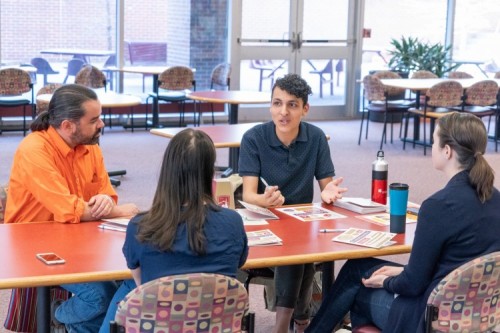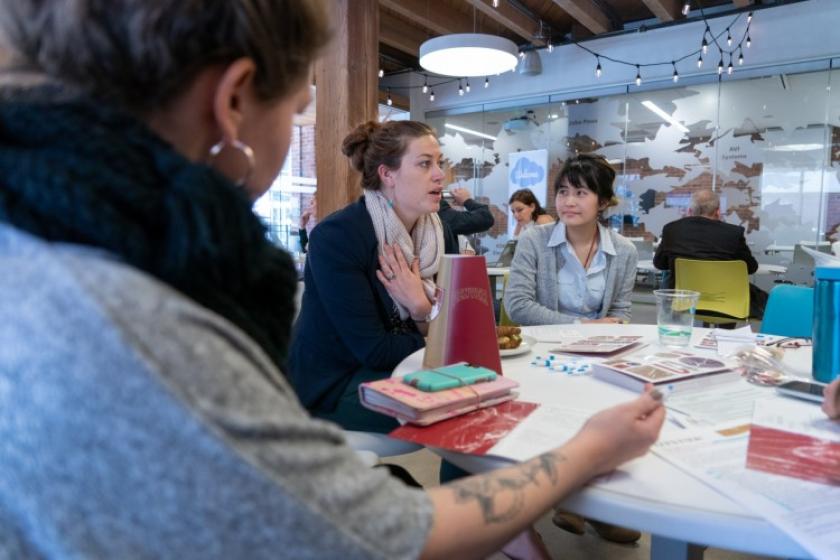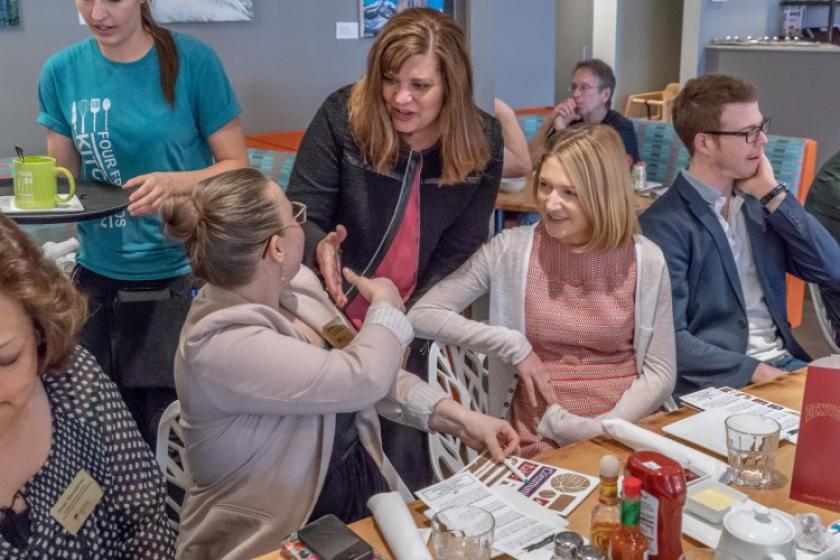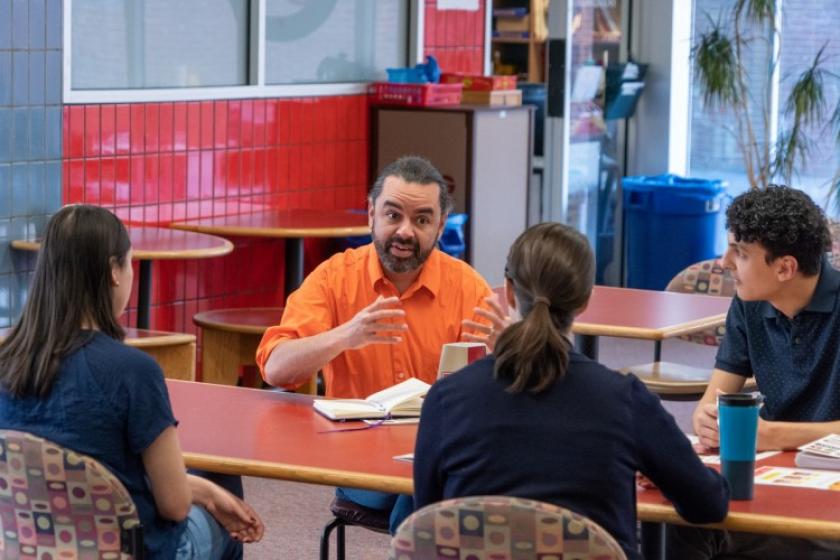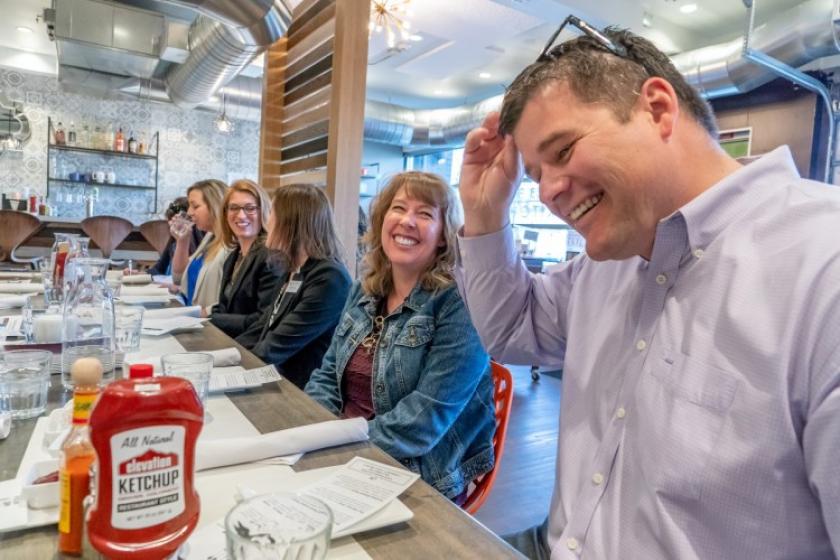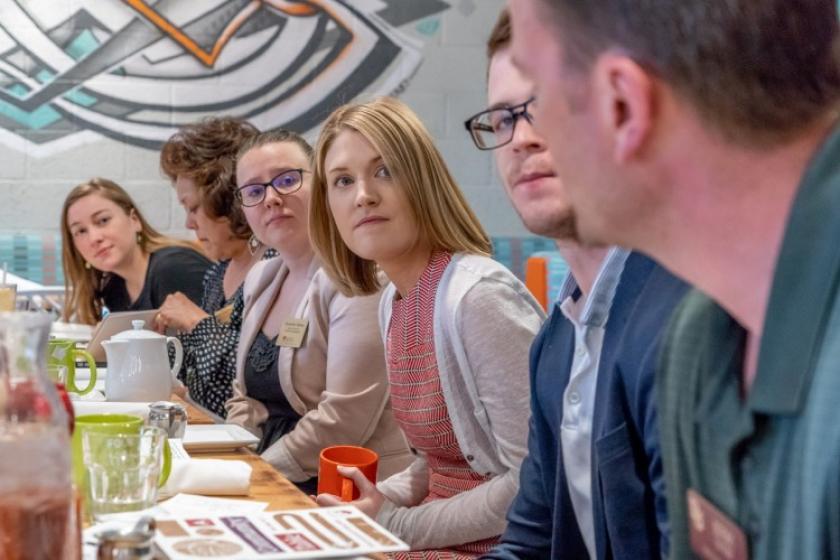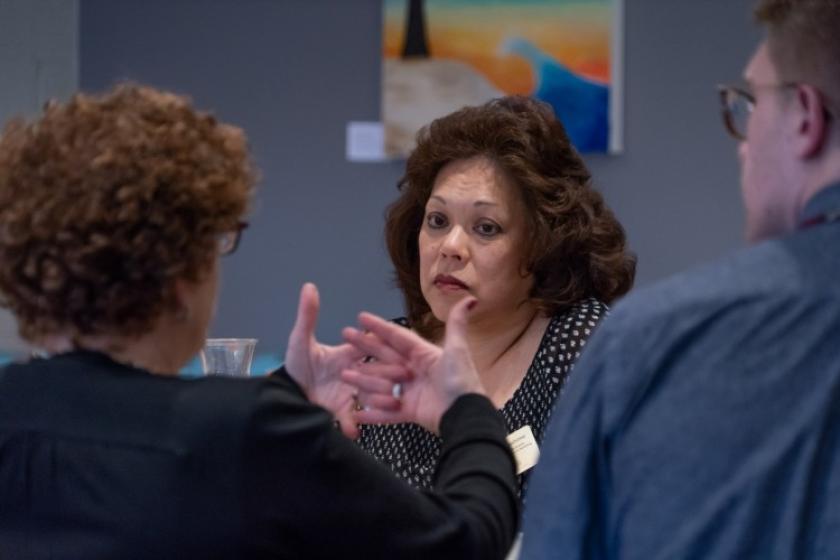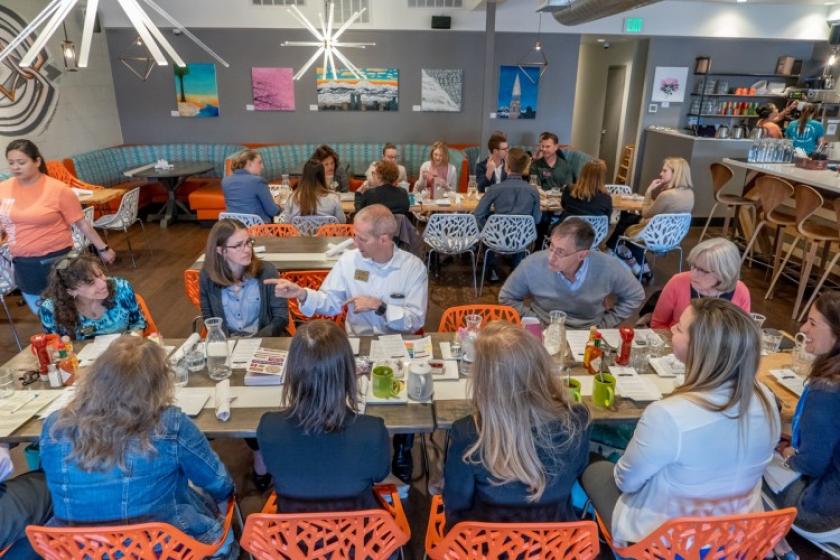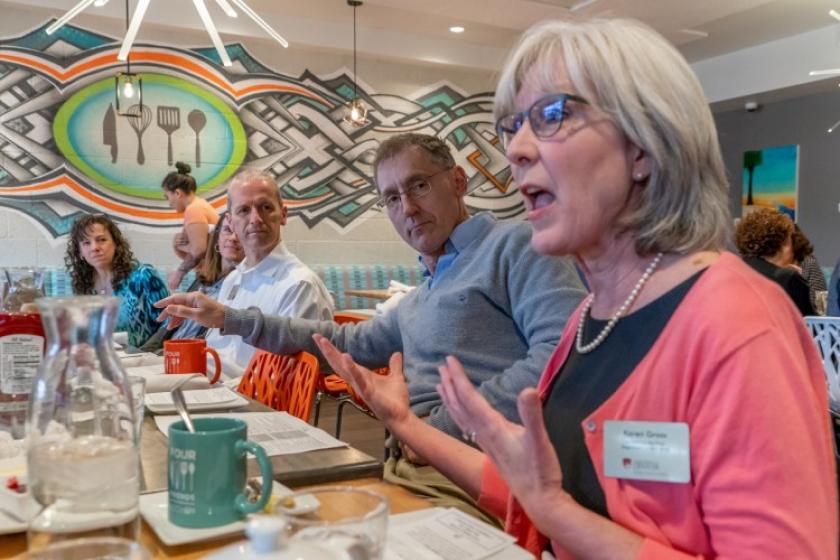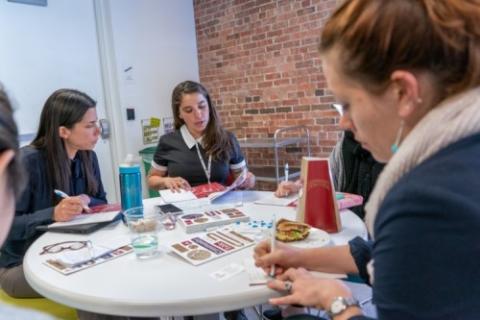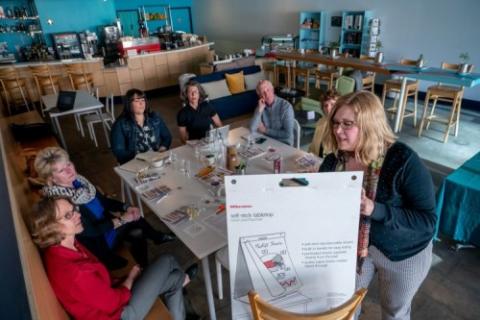Grand Challenges Spark Ideas at ‘A Community Table’
In the Driscoll Underground, students and faculty huddled around notebooks. At a community gathering space in downtown Denver, a cohort of strangers met over coffee. In a café across town, members of the community sipped wine.
On April 11, as part of the University of Denver’s worldwide DU Grand Challenges event, hundreds of different people came together — in different places and at different times — to talk about change. They gathered at what the University dubbed “A Community Table” to identify possible solutions to some of the biggest challenges — Grand Challenges — to improve daily living in communities.
The DU Grand Challenges event grows out of the University’s multipronged strategic plan, DU IMPACT 2025. In keeping with the plan’s emphasis on strengthening communities and impacting the world, groups that come up with concrete ideas are eligible to receive a $1,000 Community Table grant from DU.
“I think these spaces are the ones that generate the most amazing and innovative ideas to solve problems on our campus,” said Walid Hedidar, a second-year student at the University of Denver. “I think they’re the incubators of these awesome ideas that get people on the same page working together.”
When Hedidar heard about the event, he knew he wanted to make a difference. He signed up to host a table — one of more than 75 across the globe — and facilitated a conversation.
“The format is very open and conversational,” Hedidar said. “For me it was important to get together with community members, brainstorm about the DU Grand Challenges and figure out solutions to better our community, whether that’s here locally or the communities we influence globally.”
Joined by a professor and two graduate students, the conversation at Hedidar’s table focused on the struggles students and faculty on campus can have with dialogue. Heads nodded and pens scribbled across paper as each contributor offered his or her own perspective.









